.
10.12.2014
Part failure cuts short Morpheus test at KSC
A prototype NASA lander fired its engine today while hanging from a crane at Kennedy Space Center, but the engine quickly cut off.
NASA said a non-engine component failure was responsible for aborting the tethered test flight of the Morpheus lander just after 3 p.m. north of KSC's shuttle runway.
The four-legged lander measuring about 10 feet tall and 10 feet on each side briefly dangled from side to side before stabilizing.
Assuming there is no major technical problem, Morpheus hopes to perform two free flights in December to test an upgraded package of laser landing sensors.
Then in January the vehicle will return home to Johnson Space Center in Houston.
.
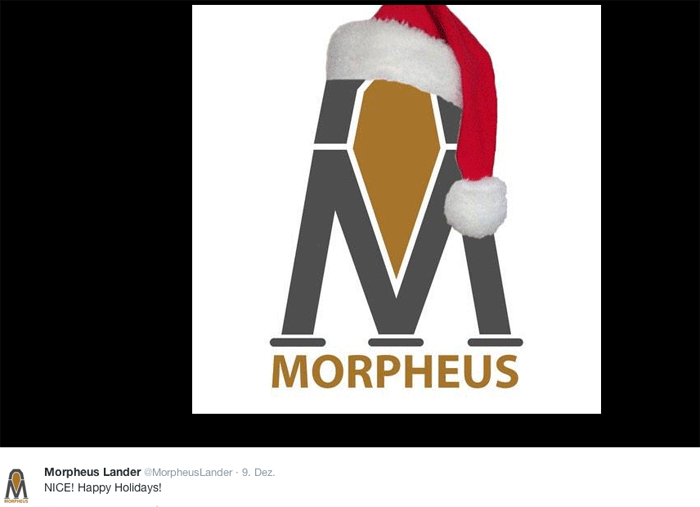
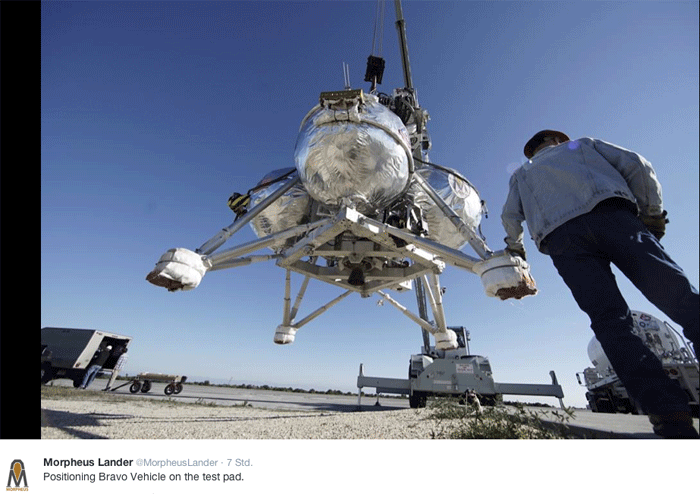
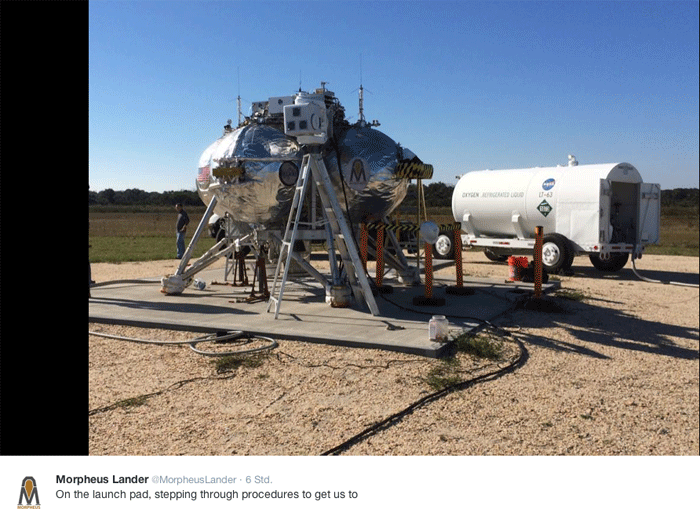
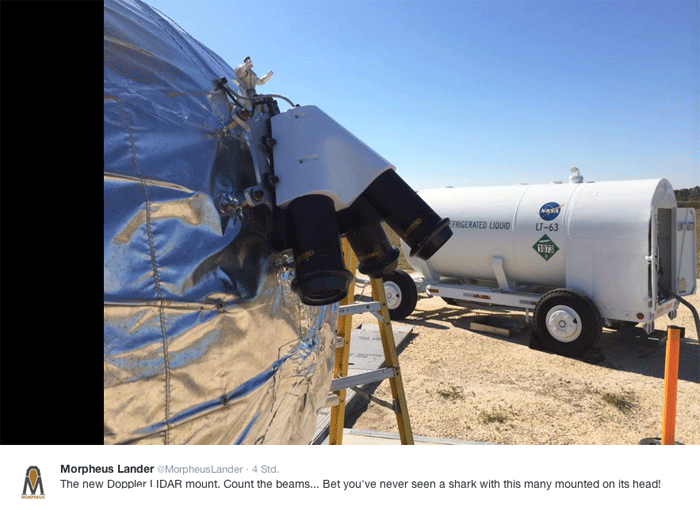
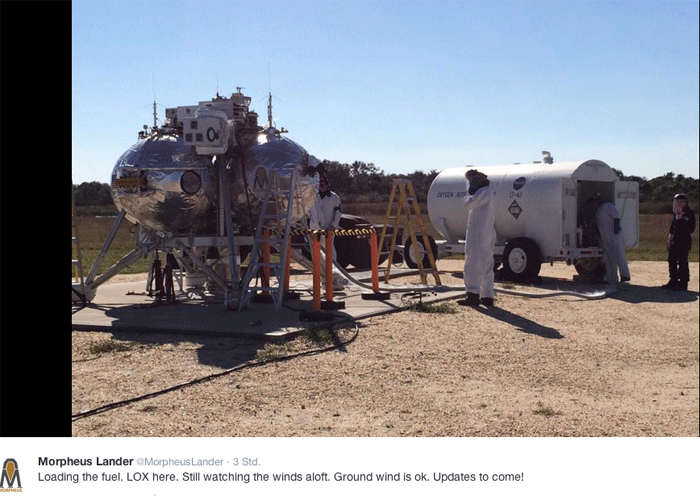
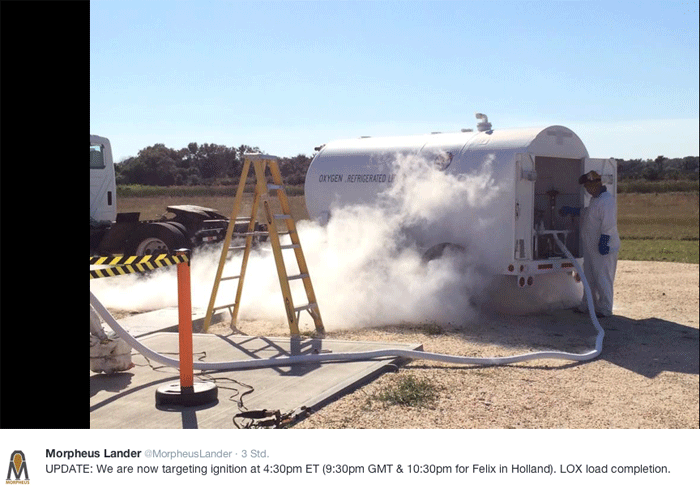
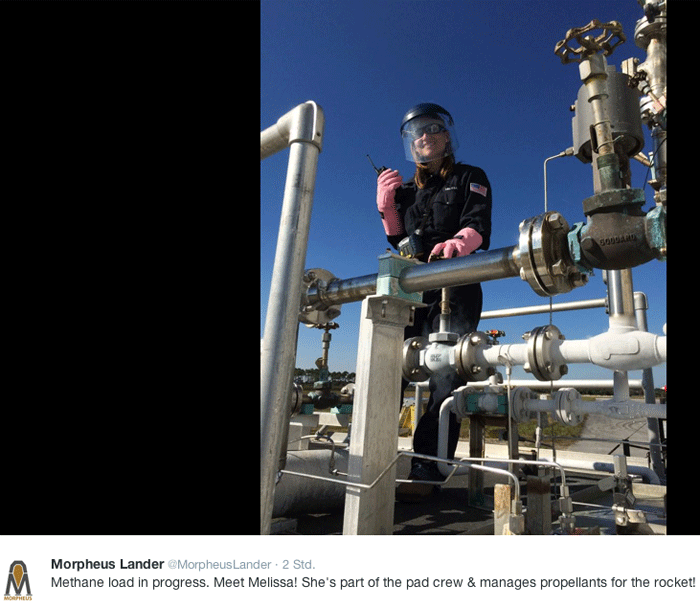
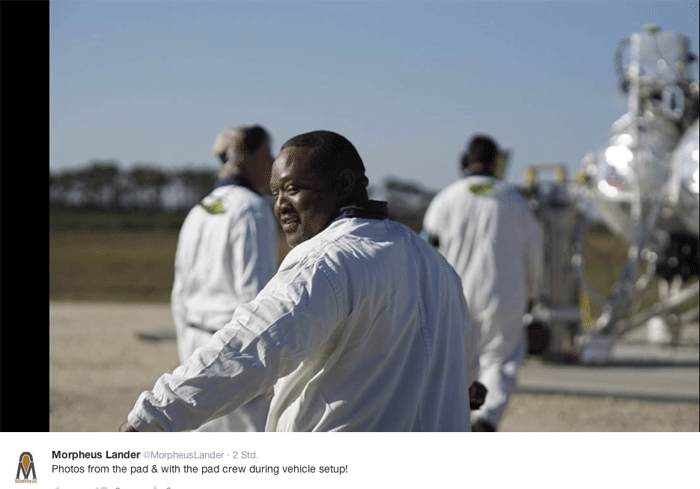
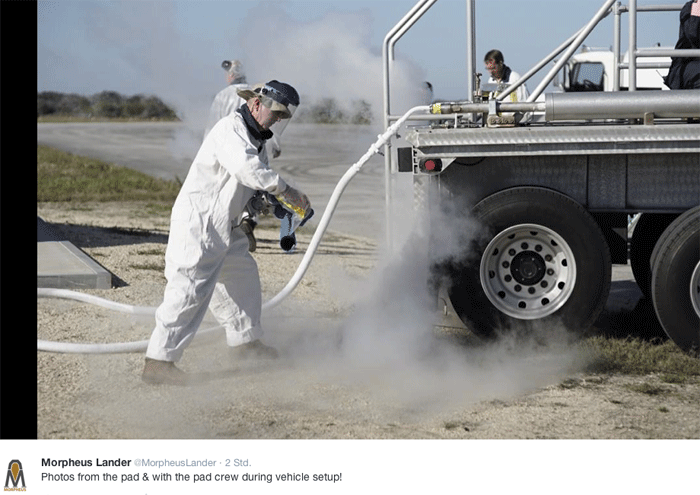
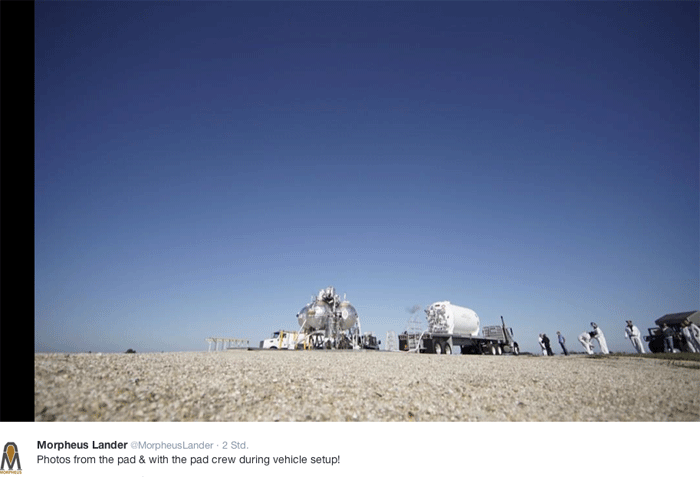
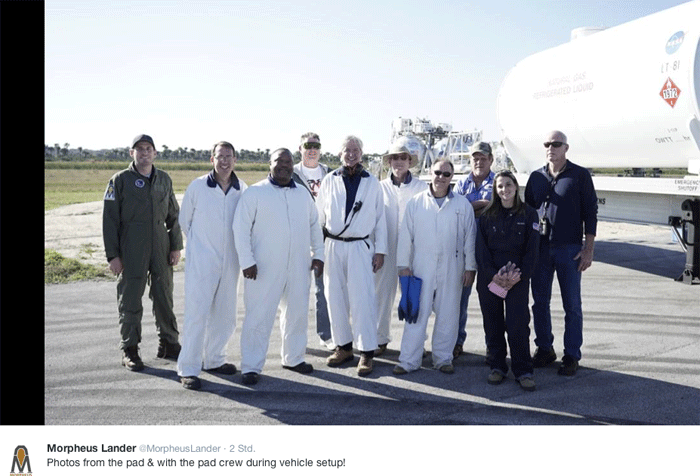
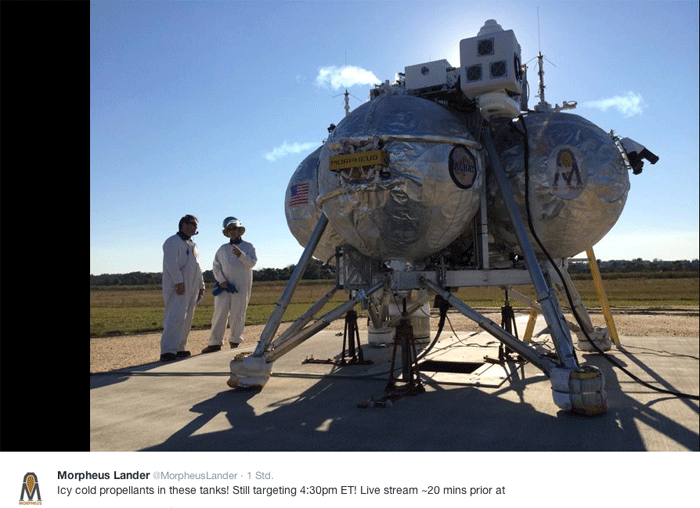
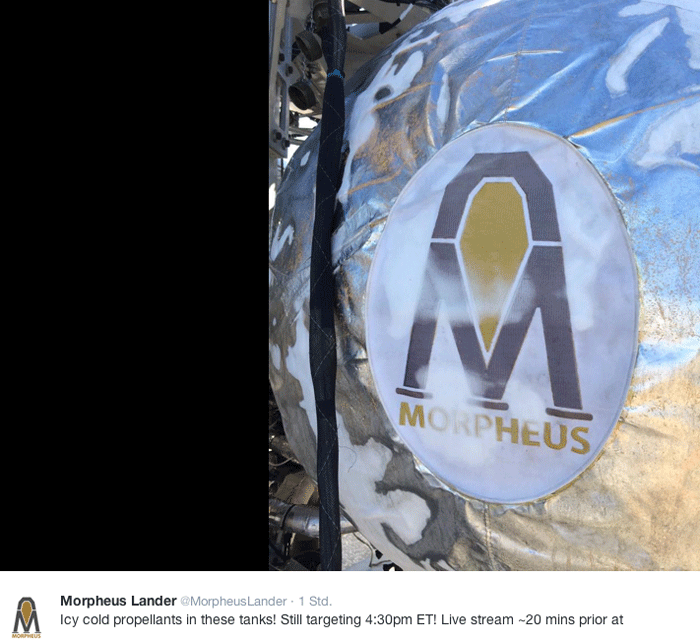
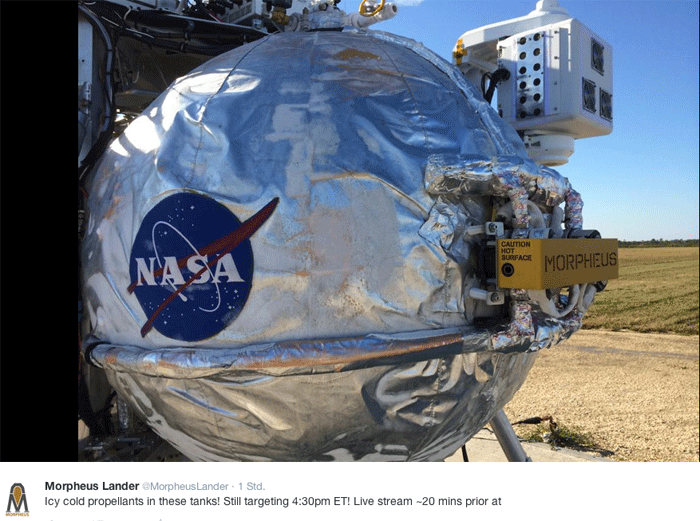
...
Flt Plan: Launch & ascend 245 m, Fly forward & downward about 406.5 m & divert to landing site approximately 24 m from its initial target.
...
LIVE-Frams:
---
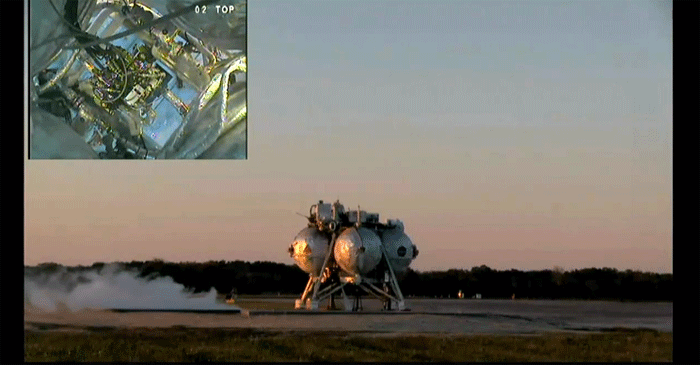
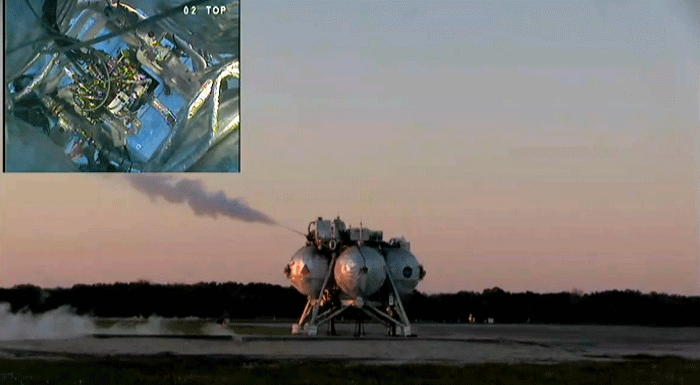
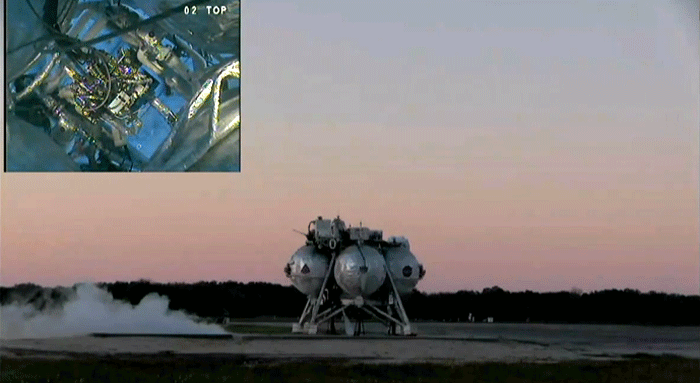
...23.40 MEZ
Morpheus Lander @MorpheusLander
@AideTechBot Waiting for an airplane to take off or land.
Expand
33m
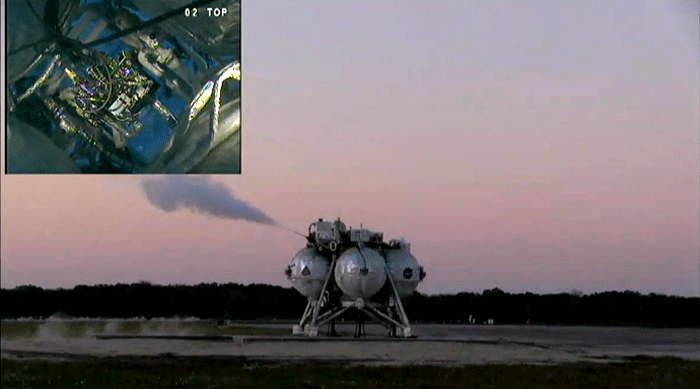
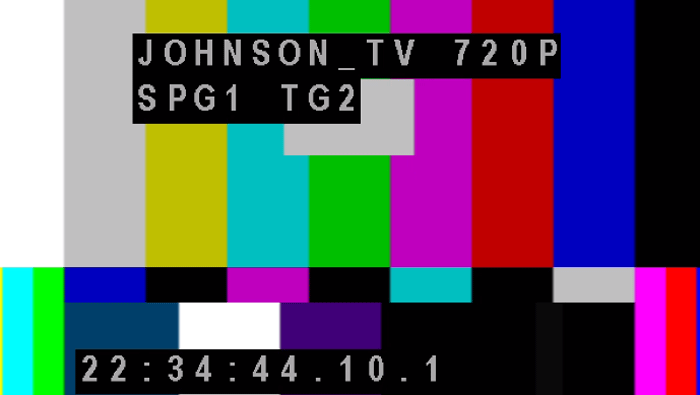
...23.50 MEZ
7m
Morpheus Lander @MorpheusLander
@timmermansr Agree, but that is beyond us. We use what NASA already has in place for ustream. :-/
Expand
10m
Morpheus Lander @MorpheusLander
@filkerdave We will have to get the sensors working before another attempt. Perhaps, but maybe Friday. We will keep you posted!
11m
Morpheus Lander @MorpheusLander
@Blackprojects @NASA_Marshall @NASAKennedy We HOPE. They will need to evaluate the sensors. They may need tomorrow to get them working
Expand
14m
Morpheus Lander @MorpheusLander
@R0bertNicholas The have built in holds, or when they are waiting for something, they keep radio silent unless they need to contact pad crew
Expand
17m
Morpheus Lander @MorpheusLander
Sorry to report… we have to scrub today. We've exhausted resources troubleshooting sensors. Stay tuned for details on next attempt.
Expand
19m
...
Sorry to report… we have to scrub today. We've exhausted resources troubleshooting sensors. Stay tuned for details on next attempt.
Quelle:Morpheus
.
Update: 11.12.2014
.
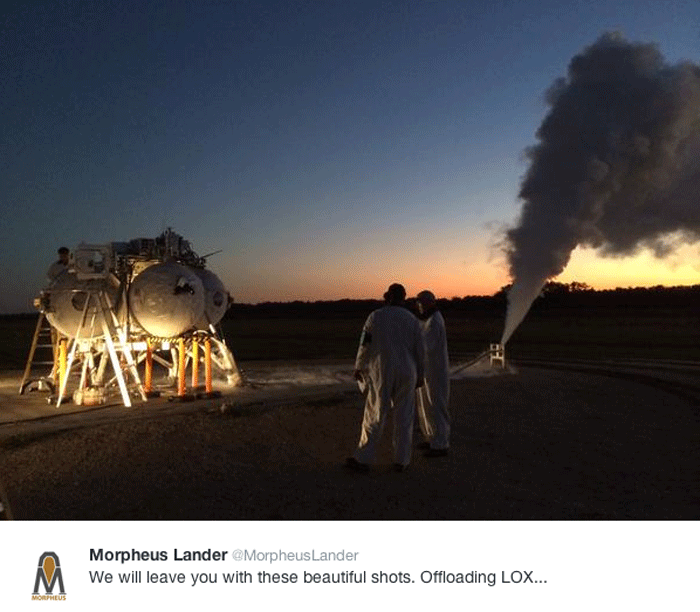
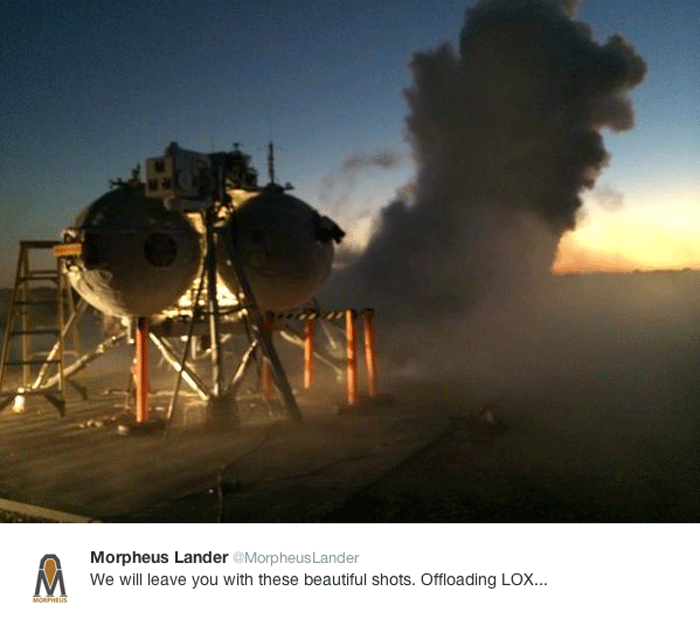
Quelle: Morpheus
.
... 20.45 MEZ
.
5h
Morpheus LanderMorpheusLander
Zielzeit für Zündung: 04.10 Uhr EST (21.10 Uhr GMT) für Updates auf Free Flight 15NASAKennedy heute Bleiben Sie dran! #
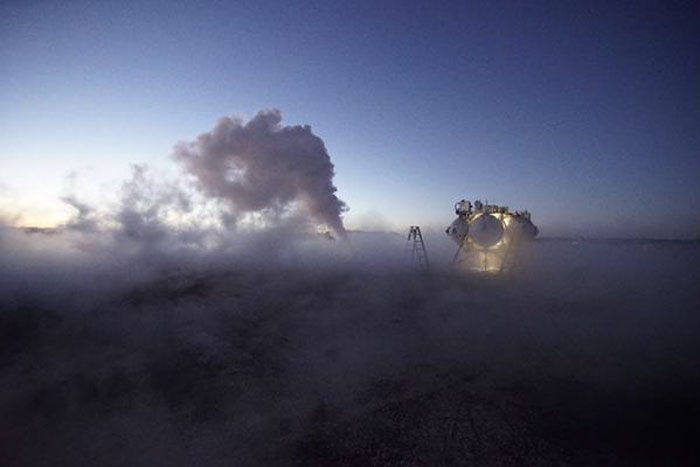
...
LIVE-FRAMS : 21.00 MEZ
.
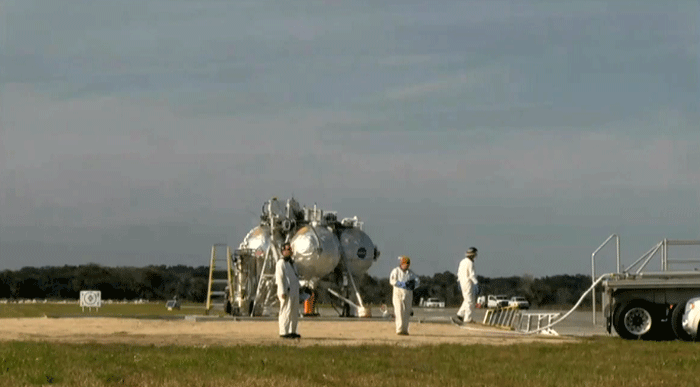
...21.40 MEZ
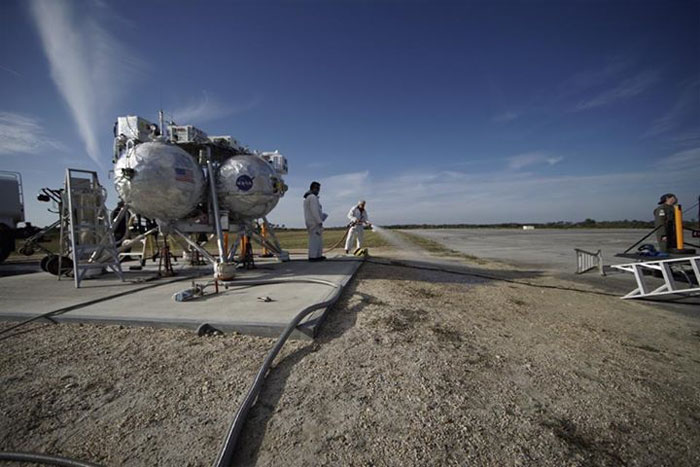
... 22.15 MEZ
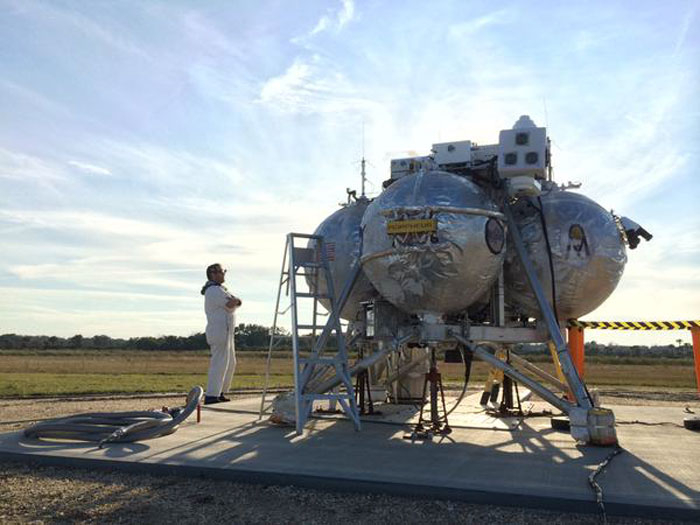
...23.45 MEZ
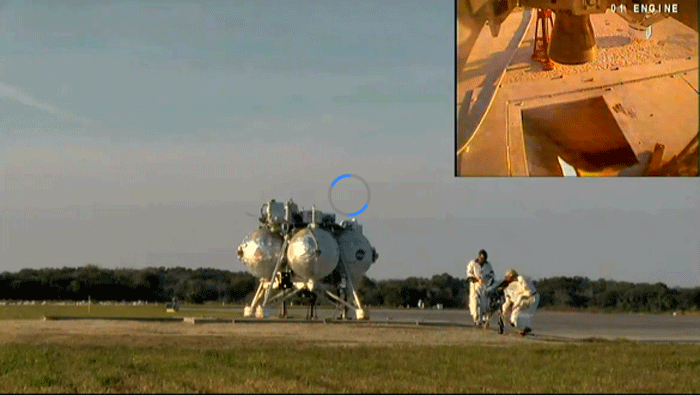
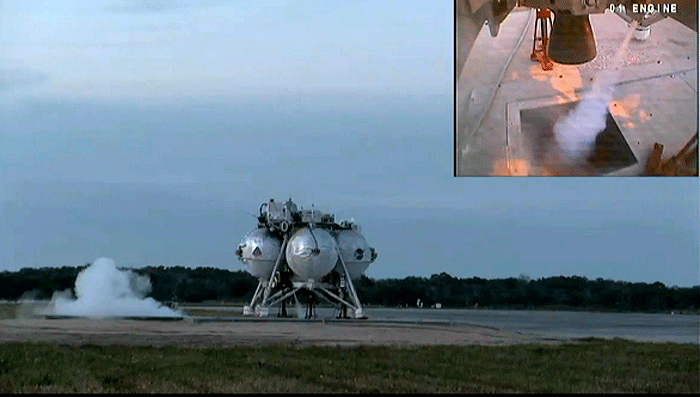
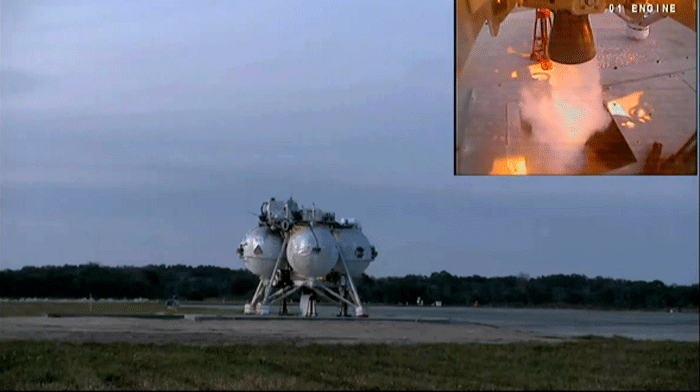
Fehlfunktion...
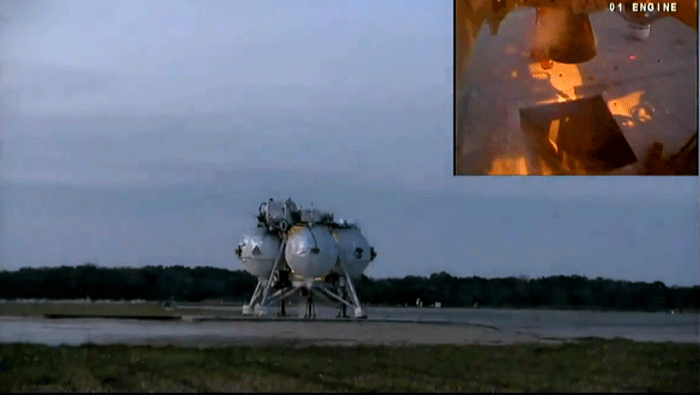
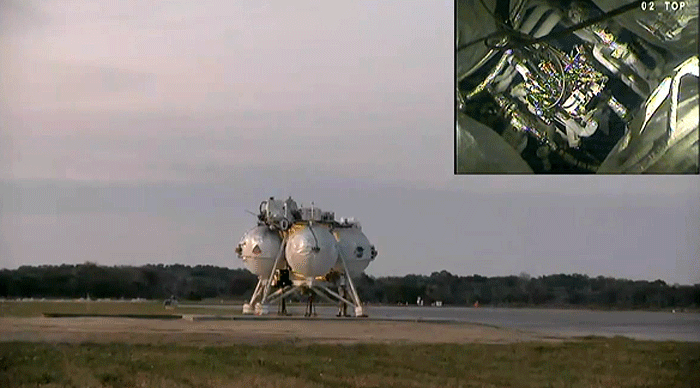
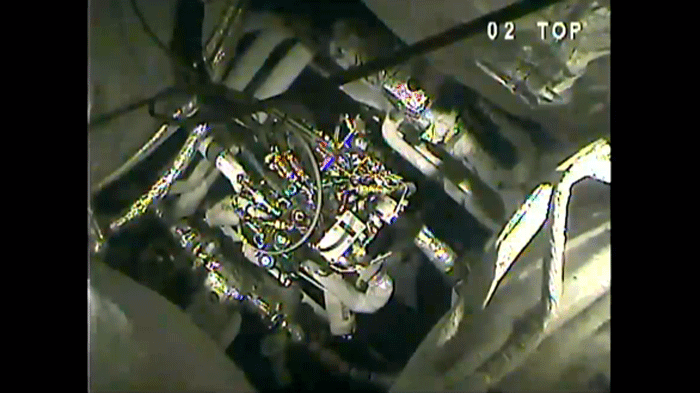
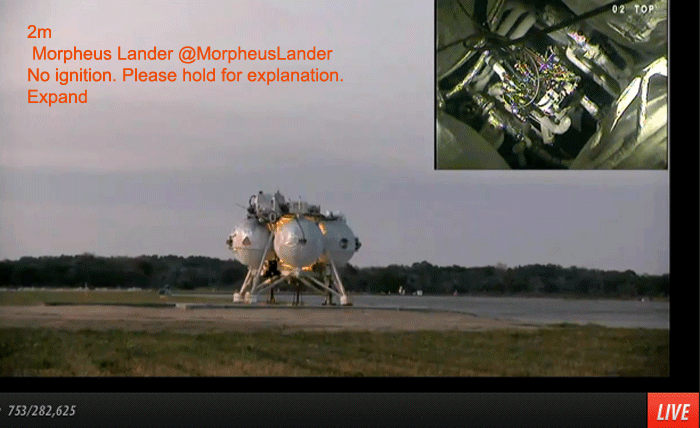
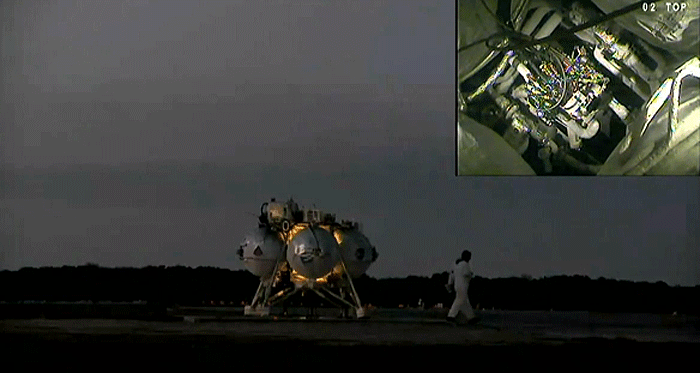
...
13m
Morpheus Lander @MorpheusLander
We had an instability that caused immediate shutdown. We need to investigate before performing more testing. Thanks for joining & stay tuned
Quelle: Morpheus
.
Update: 12.12.2014
.
Morpheus Lander @MorpheusLander
.
We had an instability trigger an immediate shutdown of the vehicle during ignition. We need to investigate before continuing with testing. We are scrubbed for today, but stay tuned as we decide what's next and when the next test may be. Thanks for joining us!
...
UPDATE: Next attempt should be next week. No test tomorrow.
Quelle: Morpheus
.
Update: 15.12.2014 / 17.40 MEZ LIVE
.
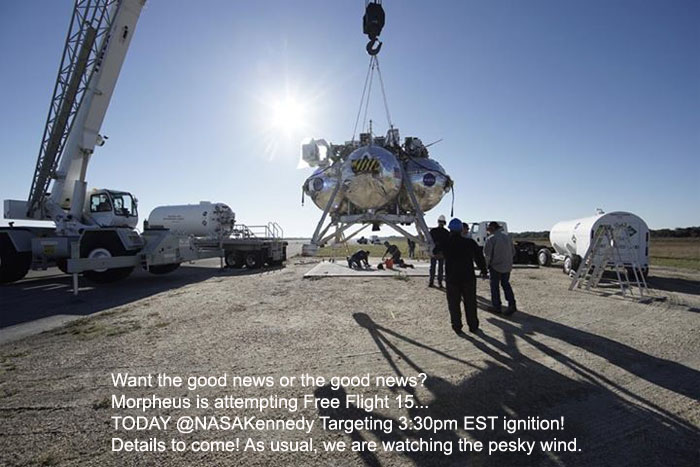
... 20.20 MEZ
.
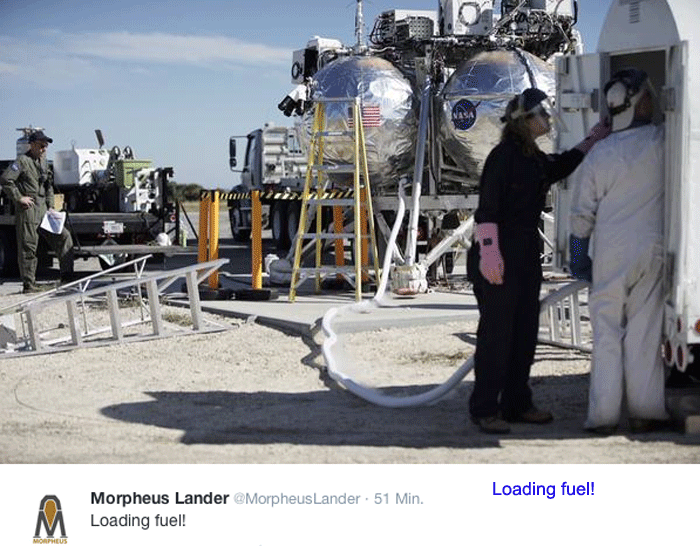
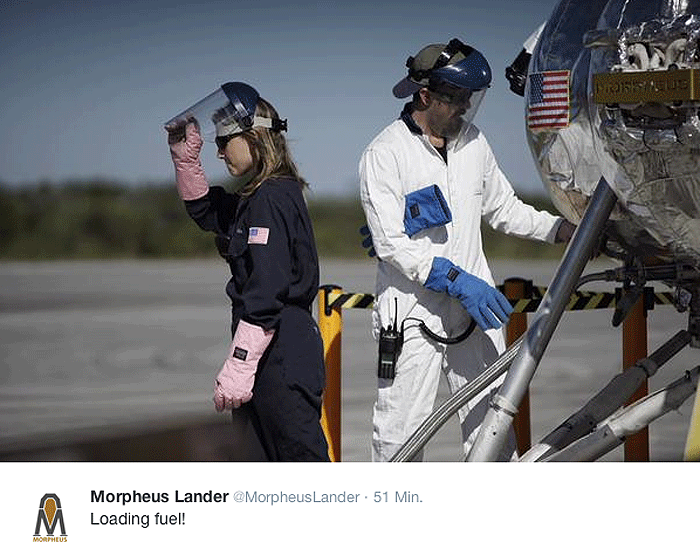
...20.40 MEZ
UPDATE: Now targeting 4pm EST (9pm GMT) ignition!
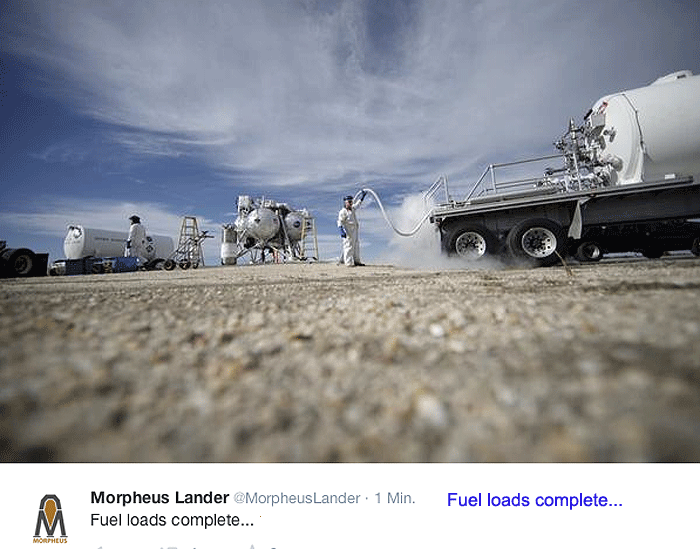
...22.15 MEZ
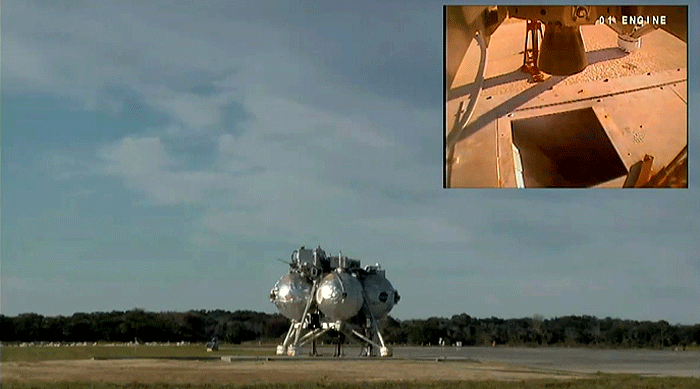
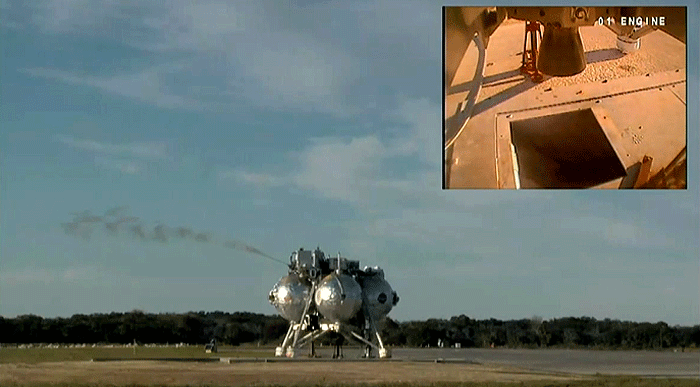
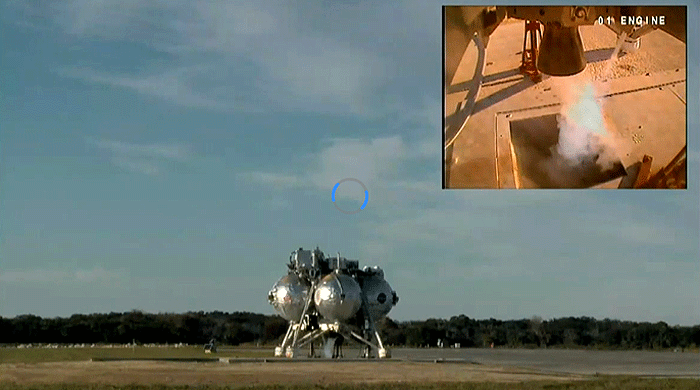
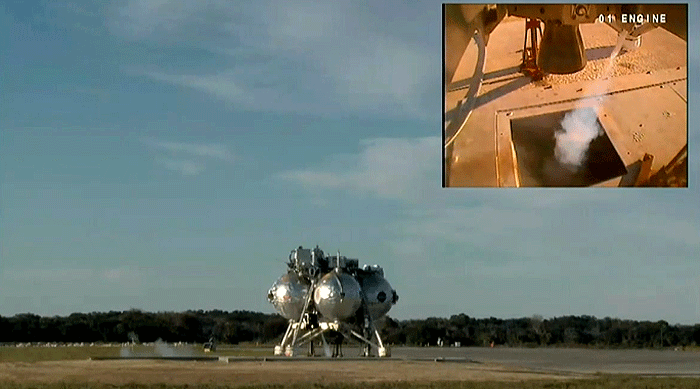
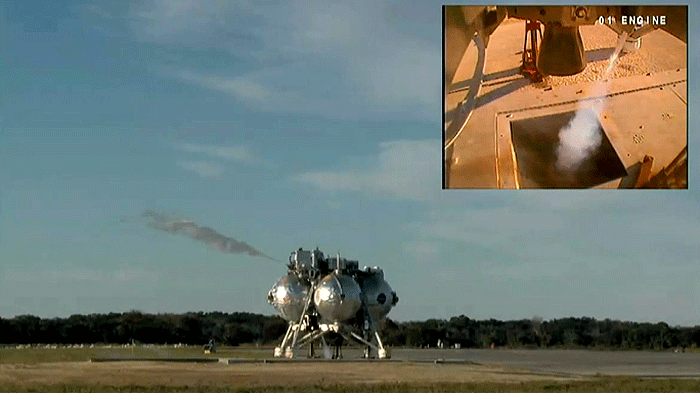
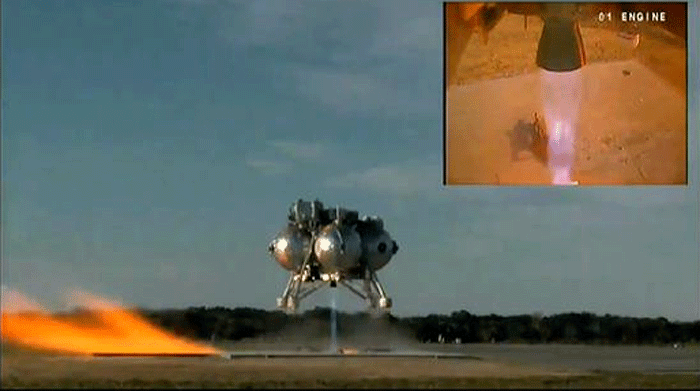
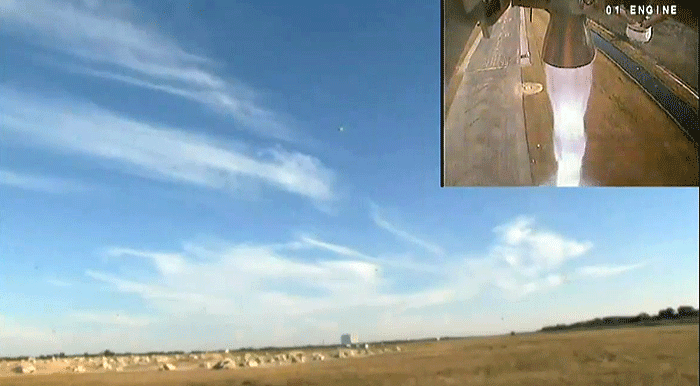
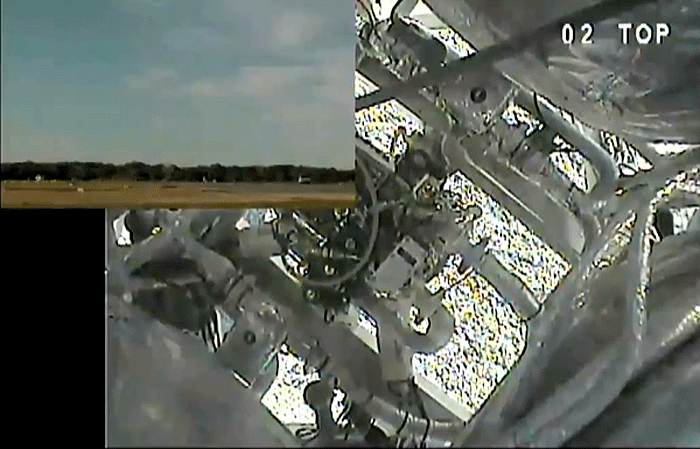
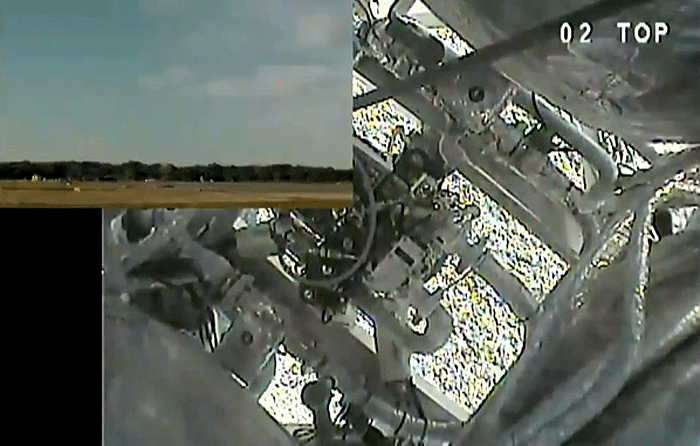
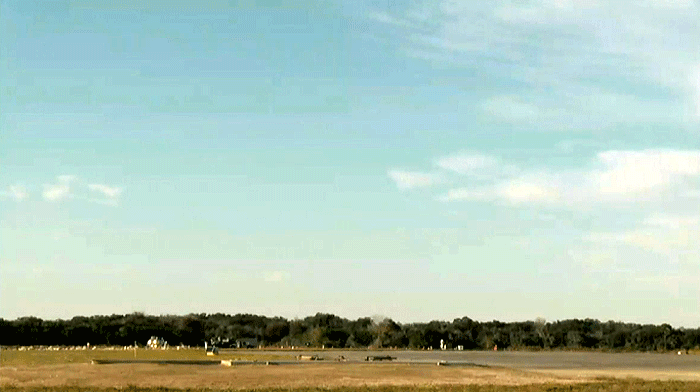
...
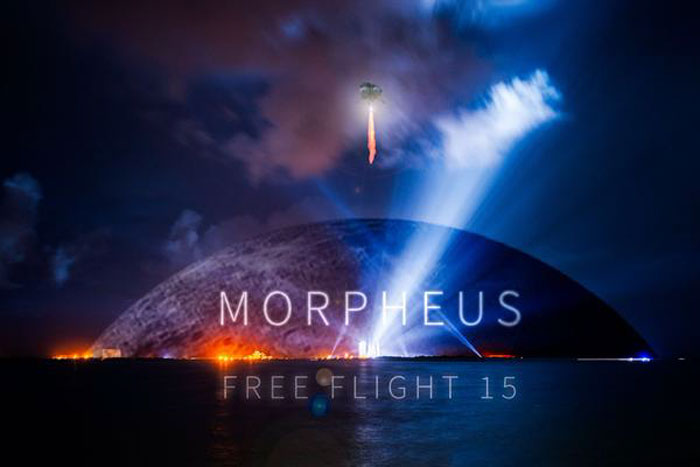
Quelle: Morpheus
.
Update: 16.12.2014
.
NASA's Morpheus completes successful final test at KSC
An experimental NASA lander took flight today for the last time at Kennedy Space Center, successfully completing a quarter-mile hop testing technologies that future exploration missions might incorporate.
The four-legged Morpheus lander lit its engine at 4:11 p.m. and climbed about 800 feet, then flew forward 1,300 feet while descending to a pad in a simulated moonscape north of the shuttle runway, where it touched down in a cloud of dust.
Team members reported that Morpheus' laser-guided navigation system had controlled the entire flight, a key objective not achieved during several previous attempts.
The 97-second flight was the last planned before Morpheus is shipped home next month to Johnson Space Center in Houston.
Part of NASA's Advanced Exploration Systems division, Morpheus, which measures 10 feet on a side, was established not to fly in space but to demonstrate technologies that could support future human or robotic exploration.
Those included a liquid methane propulsion system and a package of laser sensors and software designed to identify landing hazards and steer Morpheus to safe landing sites.
The project arrived at KSC with a bang in 2012, immediately suffering a crash and explosion that destroyed the first vehicle.
A new "Bravo" vehicle returned just over a year ago for the first of a dozen free flights.
After a summer break to analyze the results from those flights, the team reconvened recently for what NASA hoped would be two more flights in Florida to wring out the laser sensors called ALHAT, short for Autonomous Landing and Hazard Avoidance Technology.
But weather and a series of technical glitches left only enough time for one flight.
Before liftoff, Jon Olansen, the Morpheus project manager, congratulated his team on years of work resulting in the opportunity to prove technologies that could be applied to missions to the moon, an asteroid or Mars.
"Rely on your training and let's make some history," he radioed from a control center near the Shuttle Landing Facility tower.
As Morpheus rose on a blue streak of flame about an hour before sunset, an onboard camera showed the three-mile runway stretch out below and the 52-story Vehicle Assembly Building in the distance.
Morpheus — named for the Greek god of dreams — then scanned a simulated patch of lunar boulders and craters, identified hazards and guided the vehicle to touchdown on a concrete pad.
The Morpheus team applauded, and later gathered for a photo to celebrate the milestone.
Quelle: Florida Today
5009 Views
